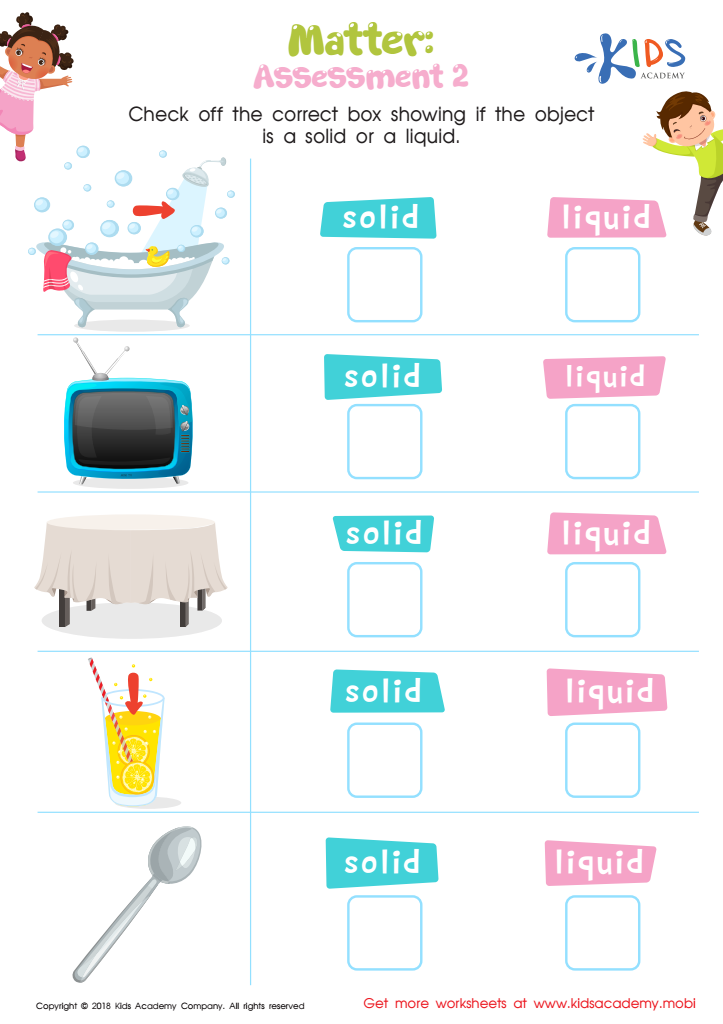Normal Science Worksheets Activities With Answers for Ages 5-8
10 filtered results
-
From - To
Explore our engaging Normal Science Worksheets designed specifically for children ages 5-8! These interactive activities focus on boosting scientific knowledge while making learning fun and enjoyable. Our worksheets cover fundamental concepts in an approachable way, featuring a range of topics that spark curiosity in young minds. Each worksheet comes with detailed answer keys, providing educators and parents with valuable resources to facilitate discussions and enhance understanding. Ideal for classroom use or home learning, these activities support skill development, critical thinking, and a love for science. Download our worksheets today and inspire a lifelong passion for discovery in your child!


Matter: Assessment 1 Worksheet


Force and Interactions: Assessment 1 Worksheet


Space: Assessment 1 Worksheet


Ecosystems: Assessment 1 Worksheet


Light and Sound: Assessment 2 Worksheet


Animals and Plants: Assessment 2 Worksheet


Matter: Assessment 2 Worksheet


Ecosystems: Assessment 2 Worksheet


Space: Assessment 2 Worksheet


Animals and Plants: Assessment 1 Worksheet
Parents and teachers should care about Normal Science Activities for ages 5-8 because these activities play a crucial role in early childhood education. At this age, children are naturally curious and eager to explore the world around them. Introducing them to science activities fosters a love for learning and helps develop critical thinking and problem-solving skills.
Normal science activities effectively engage young learners through hands-on experiments, observation, and interactive learning. They enable children to build foundational knowledge about scientific concepts, such as weather patterns, animal habitats, and simple physics principles. By encouraging exploration and inquiry, these activities boost confidence and promote a lifelong fascination with science.
Moreover, integrating science into everyday learning supports cognitive and social-emotional development. Collaborative activities enhance teamwork skills, while discussions about observed phenomena cultivate communication abilities. Parents and educators can use these activities to create engaging learning environments that encourage curiosity and creativity.
Ultimately, investing time in science activities benefits children academically and personally. It lays the groundwork for future academic success, instills a sense of wonder, and prepares children to think critically about the challenges they will encounter in the world. Therefore, engaging in normal science activities is a vital aspect of early childhood education.

 Assign to My Students
Assign to My Students





.jpg)










